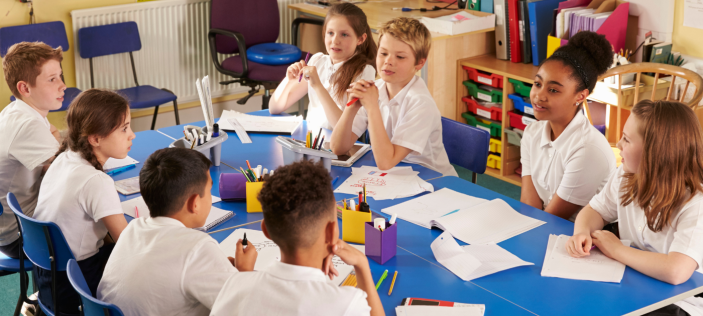
These seismic shifts in our way of life require us to reconsider how we educate children and young people.
The Wellbeing Team’s 2022 conference focused on developing pupil agency and empowerment because there are big issues on the horizon. Covid disruptions have already triggered serious debate about the way education is assessed; but I suggest that educational change needs more root and branch reform. Exact timings may be unpredictable but each of the issues below will impact on the children we are now teaching.
The 100+ year life
Generation Z is on course to normalise the 100+ year life and the first person who will live to 150 has already been born. A longer lifespan will require a reshaping of life-course patterns. The simple 3-part life that we recognise – educate, work, retire – is not compatible with an extended life. As changes impact across their 100+ years, adults will be required to re-educate, re-energise and re-focus at several points, probably going through periods with little or no working income as they reinvent themselves to respond to changing contexts. They will need the confidence to take calculated risks as the nature of work shifts and be able to recognise and seize opportunities. Essential skills in this context will be:
- self-belief and self-confidence to contribute ideas, thoughts and opinions
- an ability to learn, adapt, be creative and entrepreneurial
- skills of critical thinking and weighing options and choices
Artificial intelligence
The escalation of technological change that we have seen in the last 30+ years shows no sign of slowing. There is about to be an AI explosion, and it is much closer than most of us think. Some AI systems are already recognised as able to manage information retrieval and manipulation more effectively than the human brain. Yet, our school curriculum currently remains centred on learning and recalling facts. The assessment system tests knowledge of these facts, in order to funnel learners from one set of exams to the next. Incidentally, most adults will forget most of these facts. In the context of AI, should learning a nationally established canon of facts be so high on our agenda?
What will be the unique selling point for the future human worker in a world of advancing and advanced AI? What can humans contribute to the working world that is better than what AI can deliver? The answers must be related to our humanity. Duckworth and Jaeger in 2015 suggested 8 dimensions that humans uniquely offer - creativity, curiosity, critical thinking, entrepreneurship, collaboration, communication, growth mindset and global competence. Zhao’s 2018 list is shorter; foreseeing that humans are superior to AI in ‘being unique individuals’ and ‘being equipped with social and emotional intelligence.’ My own list includes the following as essential attributes to nurture in an AI-enriched world:
- empathy, compassion and perspective
- interpersonal, social and emotional skills
- collaboration and co-operation
- personal values and ethics
- individuality and uniqueness
- imagination and creativity
Global crises
As if all that wasn’t enough, a series of major crises are also on the horizon.
Firstly, hot on the heels of the vast borrowing that funded Covid responses, widespread economic crisis is beginning to bite. Speaking locally, Britain is at the wrong end of Europe’s ‘economic prediction’ league tables, and the increase in people living in poverty will be significant and protracted.
We are also already seeing the early stages of a full global food crisis. Food supplies will continue to be impacted by war, by climate change, and are vulnerable anyway, given that 90% of world food is distributed by only four global companies. (There is no monopoly constraint at an international level.)
Global warming is an existential threat, and we can see the speed of environmental change escalating. It is coming; we just don’t know exactly when. Climate change will lead to significant human migrations, from newly formed wastelands and flood zones, initially into shrinking areas of life-sustaining land. (As a little bonus, the increased density of populations will enable easier transmission of pandemics, further economic collapse and more food shortages.)
So, what do our pupils need to be learning now to prepare them for this level of challenge to our way of life? I believe they need a strong curriculum that will enable them to:
- develop personal agency across a range of learning, thinking and skill areas
- be empowered to express their views and concerns effectively in a variety of ways
- understand how to influence and hold to account, political systems responding to inequality, human rights and existential threats
- develop skills of survival, problem solving, responsibility and collaboration
- understand their role as global citizens
As a starting point, adopting teaching approaches and content to develop pupils’ personal agency, will empower and grow learner confidence. This, in turn, will develop their capacity and thirst to effect positive change and their ability to weigh options and act upon choices, grasping responsibility with energy.
Next steps
These seismic shifts in our way of life require us to reconsider how we educate children and young people. The debate needs energy, imagination and innovation. Curriculum change will need to take us away from education for and by conformity, and into pupil empowerment and personalised learning journeys that nurture skills, understanding, uniqueness, diversity, and community.
Rather than simply wait for transformation, we can reconsider right now the ambition, focus and depth of our collective personal development programme. Statutory RSHE already provides a context to deliver a more meaningful and personalised educational experience. But across the board, our teaching and learning approaches should enable pupils to:
- explore their passions with curiosity and commitment
- grow capacity for taking responsibility
- develop courage, innovation, creativity and determination when facing challenges
- develop nuanced problem solving and decision-making skills
- evolve empathy, compassion and personal ethics
Join us in exploring the need for meaningful curriculum change that is fit for the future. There is a long way to go.
For further exploration of these ideas in your school or trust, please contact us in the first instance by emailing wellbeing@hertsforlearning.co.uk



